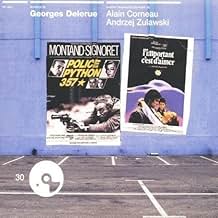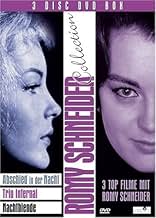Aggiungi una trama nella tua linguaServais Mont, a photographer, meets Nadine Chevalier who earns her money starring in cheap soft-core movies. Trying to help her, he borrows the money from the loan sharks to finance the thea... Leggi tuttoServais Mont, a photographer, meets Nadine Chevalier who earns her money starring in cheap soft-core movies. Trying to help her, he borrows the money from the loan sharks to finance the theatrical production of 'Richard III' and gives Nadine a part. Nadine is torn apart between S... Leggi tuttoServais Mont, a photographer, meets Nadine Chevalier who earns her money starring in cheap soft-core movies. Trying to help her, he borrows the money from the loan sharks to finance the theatrical production of 'Richard III' and gives Nadine a part. Nadine is torn apart between Servais, for whom she is falling in love, and her husband Jacques, to whom she has moral ob... Leggi tutto



































